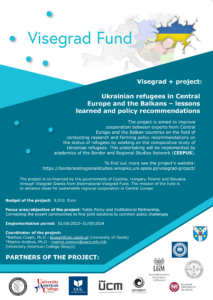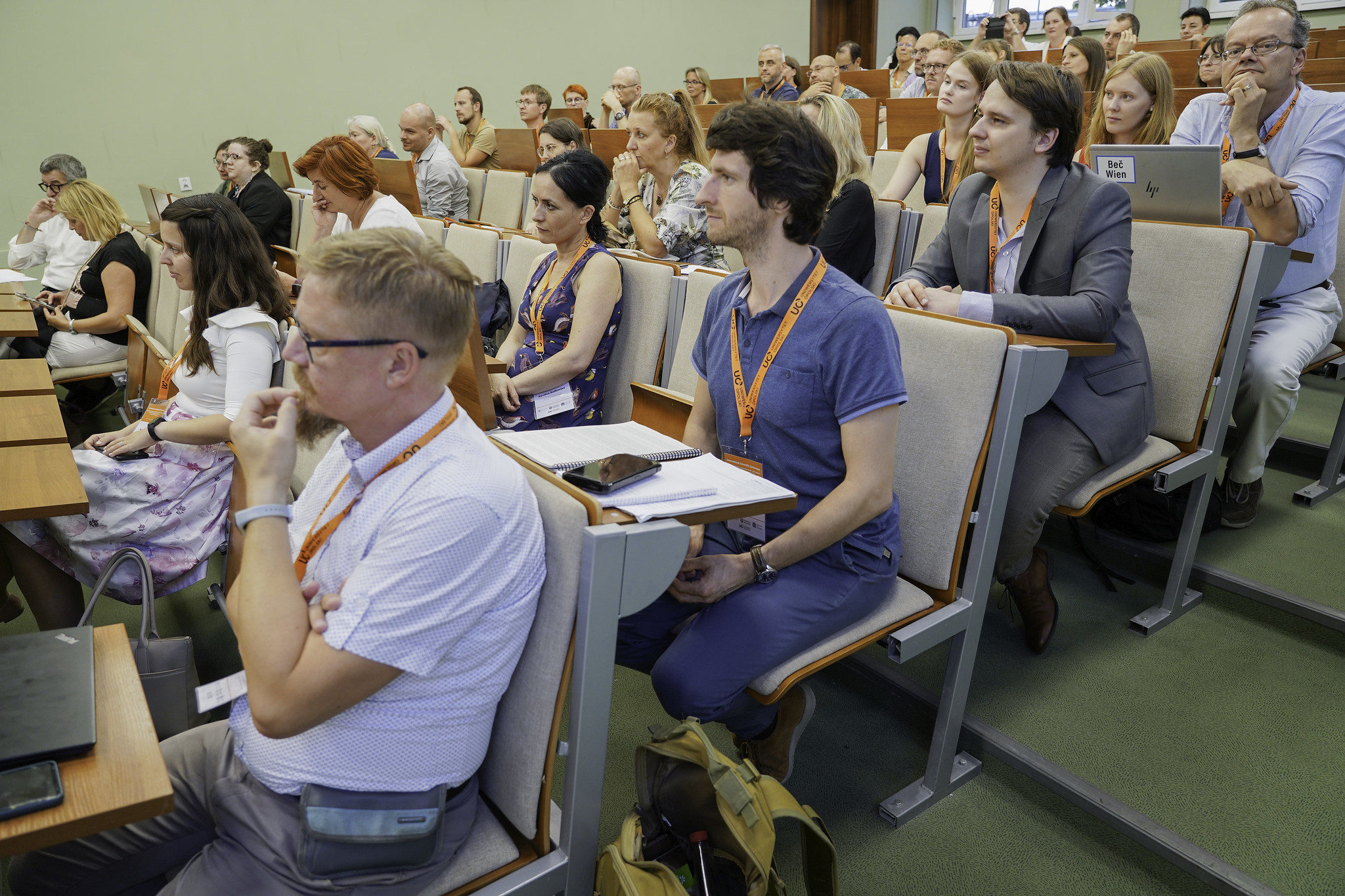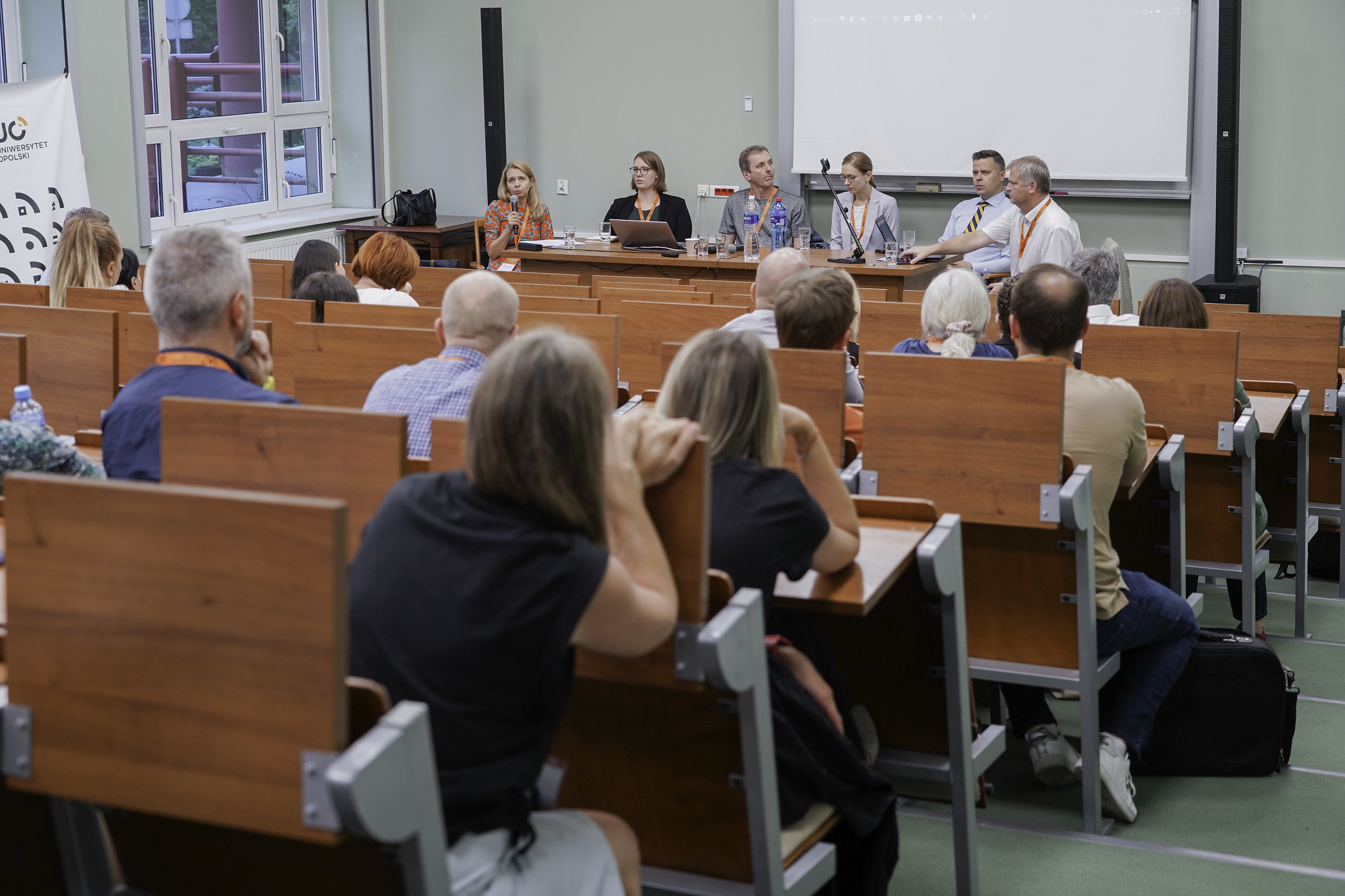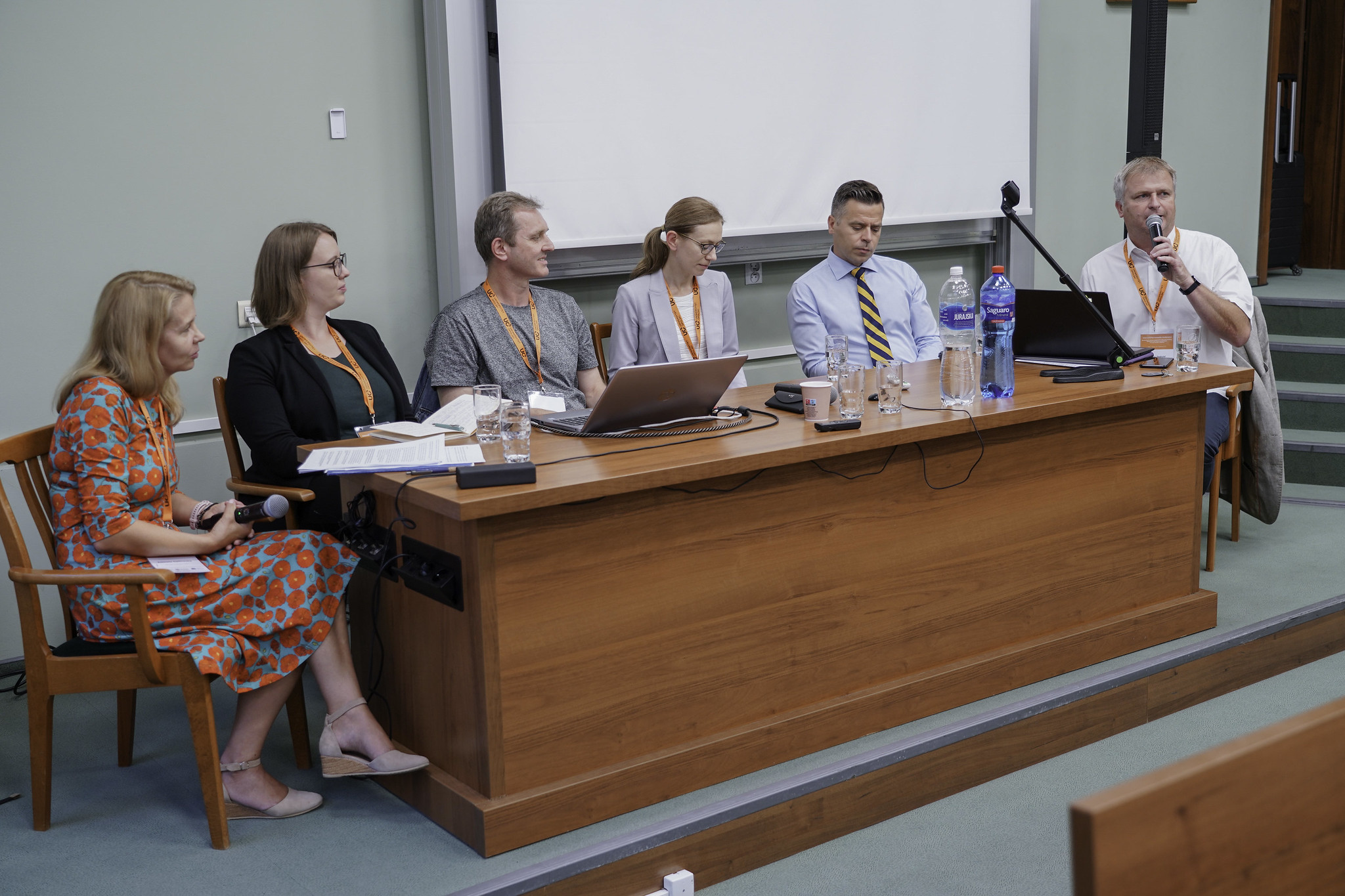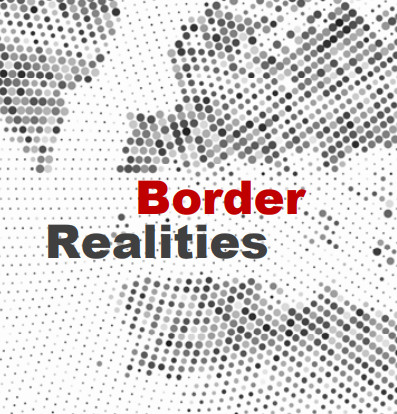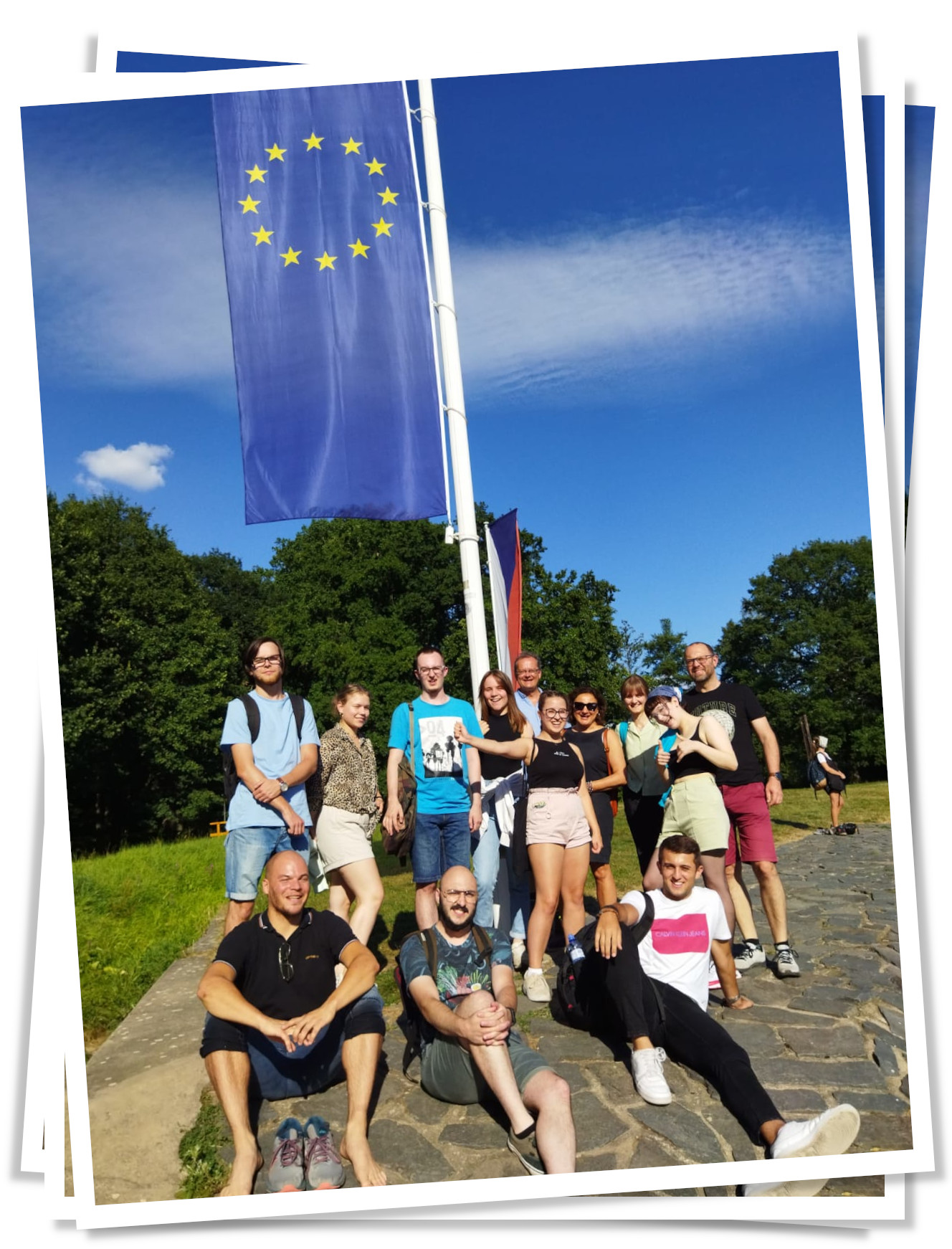Events
-
Time and location: Wrocław and Opole, 16–18 September 2024
-
Contact person: dr Wojciech Opioła (wopiola@uni.opole.pl)
-
Organizer: The Centre for Regional and Borderlands Studies, University of Wrocław; Department of the Sociology of Borderlands, Institute of Sociology, University of Wrocław; Institute of Political Science and Public Administration, University of Opole; The Terra Diversa Lab, University of Białystok; Faculty of Political Science and Journalism, the Adam Mickiewicz University of Poznań; Research Lab for Memory Narratives of Borderlands, University of Gdańsk;
-
The basic characteristic: Borders and borderlands have focused the attention of a wide, and ever expanding, range of people, and there is no indication that these issues will become obsolete in the years to come. There is no shortage of valuable references in Polish social sciences on borders and borderlands. Theoretical and empirical reflections on the diversity of social phenomena occurring in borderlands have been developed since the end of the 1980s, in a way referring to the tradition dating back to the interwar period, and these differences have been inscribed in a number of categories, such as ‘social borderland’ (‘transborderland’), ‘administrative borderland’ (‘borderland area’), ‘transnational borderlander’ (‘borderland man’), ‘borderland effect’, ‘social borderland area’, ‘ethnically diverse area’ and others. Over time, the findings of Polish border(lands) studies have entered into a fruitful dialogue with the output of the border studies conceived in an interdisciplinary and international way, yet it would take a lot of space to list even a selective set of undertakings (national and international) which have taken place in this respect only in the last decade or so. Yes, Polish studies have much to offer the world in this regard. Bearing in mind this good and rich tradition, as well as the challenges of the present and the future, and at the same time sharing the conviction that it is justified (or even necessary) to create a physical space for the presentation of the effects of one’s activities, the integration of the borderlands community – we have the pleasure to invite you to participate in a new project of interdisciplinary, cyclical scientific meetings – the Congress of Border and Borderlands Researchers. We plan that such an event would take place every three years in different centres of Poland and we have scheduled its first edition for 16–18 September 2024 in Wrocław and Opole. It is worth emphasising that our meeting is part of the celebration of the twentieth anniversary of the accession of Poland and a number of other countries to the European Union; a celebration that is scientific in spirit, joyful in form, though also marked with a pinch of perplexity as for the future of Europe.
To find out more about the event see the conference website: https://politologia.uni.opole.pl/conference-16-18-09-2024/
-
Time and location: October 18-20, 2023, Skopje, North Macedonia
-
Contact person: dr Marina Andeva marina.andeva@uacs.edu.mk (University American College Skopje), dr Bartosz Czepil bczepil@uni.opole.pl (University of Opole)
-
Organizer: University American College Skopje, University of Opole, Border and Regional Studies Network (the conference is co-financed by the governments of Czechia, Hungary, Poland and Slovakia through Visegrad Grants from International Visegrad Fund. The mission of the fund is to advance ideas for sustainable regional cooperation in Central Europe)
-
The basic characteristic: The conference is part of the Visegrad + project financed by the International Visegrad Fund (see: https://borderandregionalstudies.wnopiks.uni.opole.pl/visegrad-project/). The purpose of the conference is to share the results of research and work together on recommendations on refugee policy, by engaging students, experts from the UNHCR, representatives of NGOs, and Ukrainian refugees. The last, but not least, the research report, including the main findings and recommendations formulated in Skopje, will be published and disseminated among the main stakeholders.
See the pictures from the conference >>>
-
Time and location: 10-13 September 2023 , Wrocław – Opole, Poland
-
Contact details: borderlands2023wroclaw.opole@gmail.com; elzbieta.opilowska@uwr.edu.pl
-
Organizer: Centre for Regional and Borderlands Studies at the Institute of Sociology, University of Wrocław;Institute of Political Science and Public Administration, University of Opole; Department of Social-Scientific European Studies, Saarland University; Jean Monnet Network: “Borders, Human-to-Military Security Database”, University of Victoria
-
The basic characteristic: The 21st century faces a ‘global polycrisis’ as crises that occurred in multiple systems became causally entangled (Lawrence, Janzwood, Homer-Dixon 2022). In particular borderlands that are situated at the intersection of at least two national territories, political systems, cultural orders, and social spaces have been impacted by numerous disruptions that violated their stability and the sense of security. The so-called migration crisis, Brexit, the Covid-19 pandemic, the Polish-Belarusian humanitarian border crisis, and the recent war in Ukraine have affected the function of borders and also changed the lenses through which borders are perceived. The revival of borders as separating lines between sovereign states and societies, the rise of nationalist movements, new social divisions, ethnic or religious exclusions can be perceived as problems that seemed to fade in the optimistic vision of European development but that have returned with redoubled force. These new processes pose a challenge not only for political authorities but also for researchers who are trying to grasp the dynamically changing social reality and new public discourses. What short- and long-term consequences result from these changes? How to handle the multiplied crises? What are the adaptation strategies of individuals, communities, and political authorities? To what extent are they resilient to these disruptive events? We invite you to Wrocław and Opole to discuss the new changes that occur in borderlands and the challenges faced by multiple actors as raised above.
To find out more about the conference programme, its aims and scope and important deadlines see the website: http://politologia.uni.opole.pl/conference-2023/
Some of the speakers >>>
-
Time and location: 19-20 May 2023, Iasi, Romania
-
Contact person: prof. Gabriela Carmen Pascariu (e-mail: gcpas@uaic.ro)
-
Organizer: Alexandru Ioan Cuza University of Iasi
-
The basic characteristic: The EURINT conference series was launched in Iasi by the Centre for European Studies in 2013 in the frame of the Jean Monnet Life Long Learning Programme. Since 2013 the EURINT conference has established itself as one of the most visible academic events in field of European Studies from Central and Eastern Europe. The 2023 edition will focus on “Challenges and future prospects for a resilient Europe”. By organizing this conference, the aim is to create a favourable framework for dialogue and analysis on the issues facing the European Union, as well as other relevant related topics. The event is addressed to all those interested in the broad spectrum of aspects that the European Union incorporates. To find out more about the topics of possible contributions and important deadlines see the conference’s website https://eurint.uaic.ro/index.htm
International seminar on Central and Eastern Europe and its challenges in XXI century organized in Opole
On April 18-19, 2023 the Institute of Political Science and Administration of the University of Opole organized seminar dedicated to Central and Eastern Europe. The seminar gathered academics from Czech Republic (Liberec, Ostrava), Hungary (Pecs), Ukraine (Lviv) and Romania (Cluj-Napoca). The seminar was started with key note lectures delivered by professor Vincenc Kopeček (University of Ostrava) and dr Oksana Krayevska (Ivan Franko National University in Lviv).
The basic characteristic: Central and Eastern Europe (CEE) is a peculiar geopolitical, social and cultural region sharing common post-communist legacy, but still characterized by significant differences when it comes historical experience, cultural identities and political institutions. Specific identity and position of Central and Eastern Europe has been reinforced by the full scale invasion of Russia against Ukraine in February 24, 2022, displaying common interestsof the countries of the region determined by geopolitical location. But, at the same time, the aggression exposed differences between the nations of CEE showing variety of political reactions, challenges faced and opportunities for the future development. The war in Ukraine affects the whole CEE leading to questions going beyond reflection on military aspects of confrontation. It articulates variety of challenges faced by the region in XXI century like strength and weakness of liberal democracy, disinformation penetrating social imagination, migration policies in the time of intensified international migrations, different dimensions of security and risks triggered byradical nationalism. The seminar will be a platform for discussing these problems and building stronger academic community in the region of CEE.
Interdisciplinary online lecture series: Border Realities
The Centre for Regional and Borderlands Studies at the University of Wrocław invites researchers and students interested in border studies to participate in the series of lectures Border Realities. Transformation of the border and new conceptual challenges. The online lecture series aims to discuss the transformation of the border by means of empirical case studies as well as conceptual issues. International border researchers from the social sciences and cultural studies are invited to relate their own research and reflection results to the recent resurgence of borders and to elaborate on their new forms. More >>>
-
Time and location: 11th-17th September 2022, Opole, Poland
-
Contact person: Agnes Eross, Ph.D., (e-mail: agnes.eross@uni.opole.pl )
-
Organizer: University of Opole (Poland), University of St. Gallen (Switzerland), Geographical Institute, Research Centre for Astronomy and Earth Sciences, ELKH, (Hungary), University of Ostrava (Czech Republic), University of Ss. Cyril and Methodius in Trnava (Slovakia), International Visegrad Fund’s Small grant programme
-
The basic characteristic: The Summer School’s program offers a strong theoretical basis and practical skills training for university students. The organizers planned activities designed to empower the participants with audiovisual skills, which they can use both as a research method and as a dissemination of their research results. Twelve participants were selected from seven countries with diverse educational backgrounds (Arts, Humanities, Social sciences) and skill sets. They will work in groups and create 5-10 minutes’ long audiovisual etudes in collaboration with the citizens of Opole, and with experts working in local institutions. The short audiovisual etudes will be screened on 17th of September from 18:00 pm in Kino Meduza. The screening will be followed by a friendly conversation with invited lecturers and filmmakers. The closing event is open to the public
International Summer School: Cross-border Co-operation in Central Europe in the Times of Re-bordering: Story of Success (?)
- Time and location: 8 – 19 August 2022, Liberec (with field trips to other 2 European countries), Czech Republic
- Contact person: Hynek Böhm, Ph.D., (e-mail: hynek.bohm@tul.cz )
- Organizer: Technical University of Liberec; University of Opole (with support of the Erasmus + and CEEPUS programmes)
-
The basic characteristic: The goal of the program is to provide the students with an intensive interdisciplinary insight into the cross-border co-operation (CBC), which is often labelled as a laboratory of European integration at the micro-scale. The participants will learn, on the basis of geography, political science, and history, how is the CBC conducted in the EU, with special focus on differences in CBC conduct in individual EU countries with the post-communist background. More >>>



